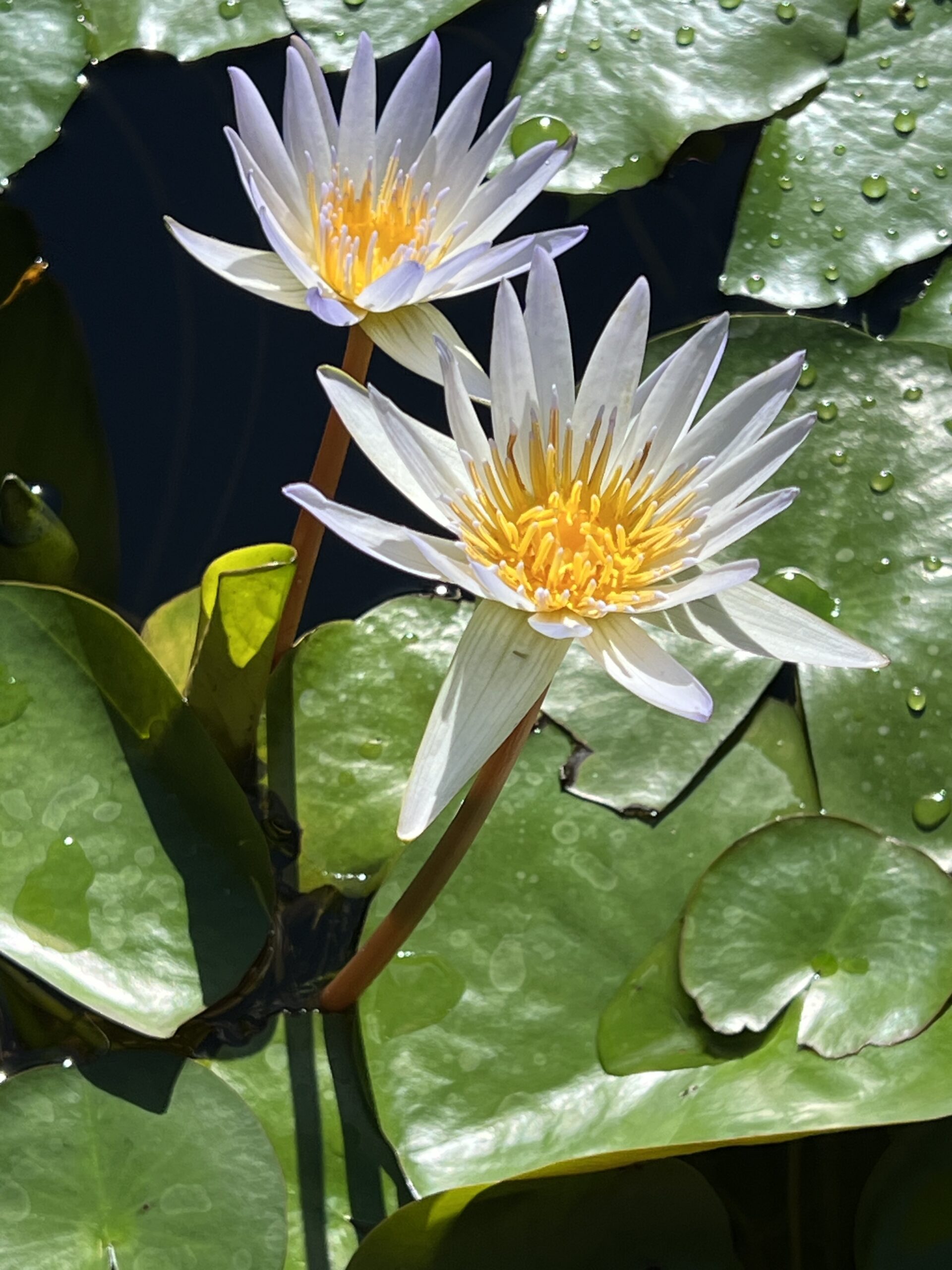“…when you are a Bear of Very Little Brain, and you Think of Things, you find sometimes that a Thing which seemed very Thingish inside you is quite different when it gets out into the open and has other people looking at it.” (Winnie the Pooh)
I now know why I am rarely on time for “dates”. I putter. A close cousin to Procrastination, Puttering is my middle name. This morning I went to get a pair of shorts from the laundry room (clean, of course…) and found myself emptying the dryer, lugging the basket into the bedroom, then folding the clothes I’d dumped onto the bed so as not to let them wrinkle too much, and only when hubby said “You’re late” did I grab my runners and dash out the door. Good thing I’m only minutes away from my destination.
But still. “It’s not nice to keep people waiting!” my inner taskmaster chides. “Is your time more important than theirs! They should probably just leave without you!” it continues. (”It” seems to occupy one degree of separation from the “me” who is being chided. As if a part of me is actually separate, and the arbiter of my acceptability. But they both, bafflingly, live inside me and vie for supremacy. And they’re not alone!)
The late Swami Sivananda Radha, mentor and teacher of many an aspiring yogi/yogini describes this pattern in “Time to be Holy”. She writes: “You want to survive in your own mind, and your own mind sets the criteria by which you want to survive. That’s a very dangerous trap. It makes difficulties and creates a lot of absolutely unnecessary pain.”
Our son, the shame educator, would call that “shaming our shame”. And say that it comes from the same source as many a counterproductive behavior: a lifetime’s-worth of unconscious coping mechanisms that not only rule our lives the way my inner taskmaster rules mine, but which obscure our essential Thingish-ness, our true thoughts and feelings. We get too busy “doing the right thing” in order that our thoughts and actions align with the voices inherited from outside. And what those voices obscure is the still, small voice of our intuitive knowing, the authentic self that remains when we strip away all our pretenses and coping mechanisms. That, too, is not without pain. There is pain in knowing one has abdicated one’s authority and authenticity for the sake of belonging. Of not rocking the boat. And what suffers most is the unexpressed potential of the soul. According to Sarah ban Breathnach, best know for her “Simple Abundance: a Daybook of Comfort and Joy”: “The authentic self is the soul made visible.”
Though trained in Transpersonal Psychology, or “care of the soul” in layman’s terms, I still struggle to explain “soul” in my own words. Like Winnie the Pooh, the Things — beliefs and ideas – closest to my heart can whither to silence when subjected to outside scrutiny. Which is the kind of humiliation from which my inner taskmaster is trying to protect me.
And therein lies the rub.
The inner aspect which I’ve unconsciously developed to protect myself from the shame of rejection, dismissal, and defeat can also be the enemy of my authenticity. Of my own unique contribution to this great human tapestry. If I can’t even communicate clearly and candidly — let alone agree — with myself, how can I possibly communicate with anybody else?
However, after decades of living according to external authorities, how DO I go about embodying my authentic self? How do I listen for the voice of the soul that I’m told holds my “distinctive human code”? Self-acceptance is the key. Acceptance of my physical, mental and emotional make-up. Acceptance of who I am, why I’ve done what I’ve done, where I’ve been, how I’ve erred and when succeeded. What works for me is stopping the mental chatter of “coulda, shoulda, woulda” — and their opposites — long enough to let inspiration arise from what James Hollis calls “unknown zones”, or the “unfathomable otherness of the universe”.
Soul is one of the many things that originate in Hollis’s unfathomable otherness. So too does the life force that animates me — body, mind and speech. Explaining these phenomena to my satisfaction is a futile exercise. Words fail. But I do know enough to track my footprints in a journal that I can revisit at my leisure. I know enough to steep myself in silence in order to let my intuition speak. I know how to use my ego and senses as receptors, versus drivers. And I know enough to accept that I don’t know what I think I know. Furthermore, I understand that I don’t need to know all the answers, nor be perfect according to the script I acquired as a child, in order to evolve into a more courageous, caring and self-aware human being. And that’s good enough for me.
Now, as any self-aware bear would say: what’s for lunch?
